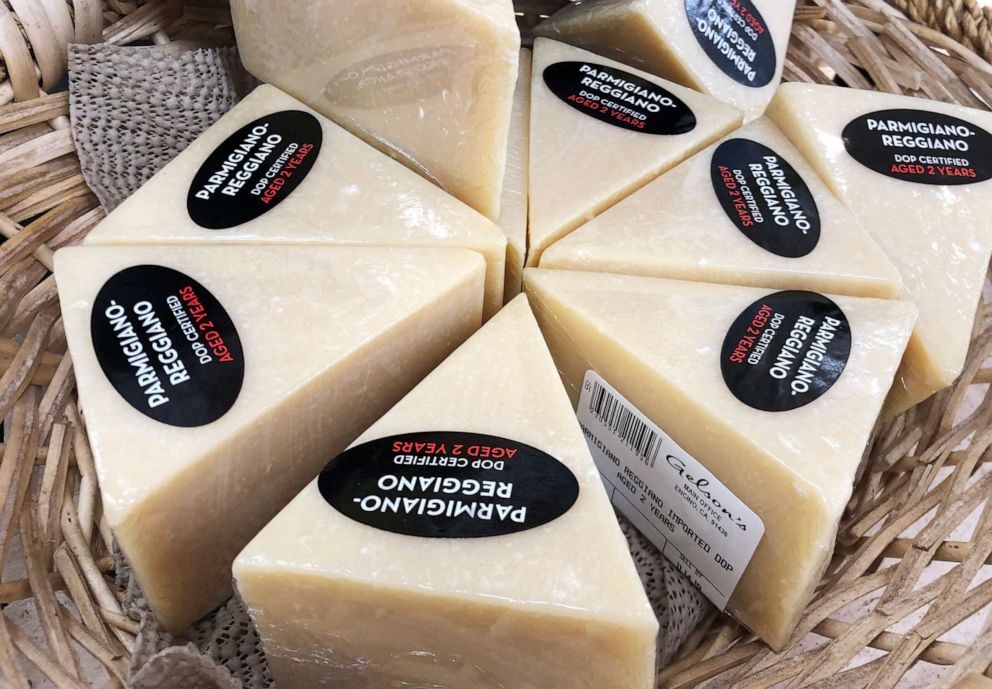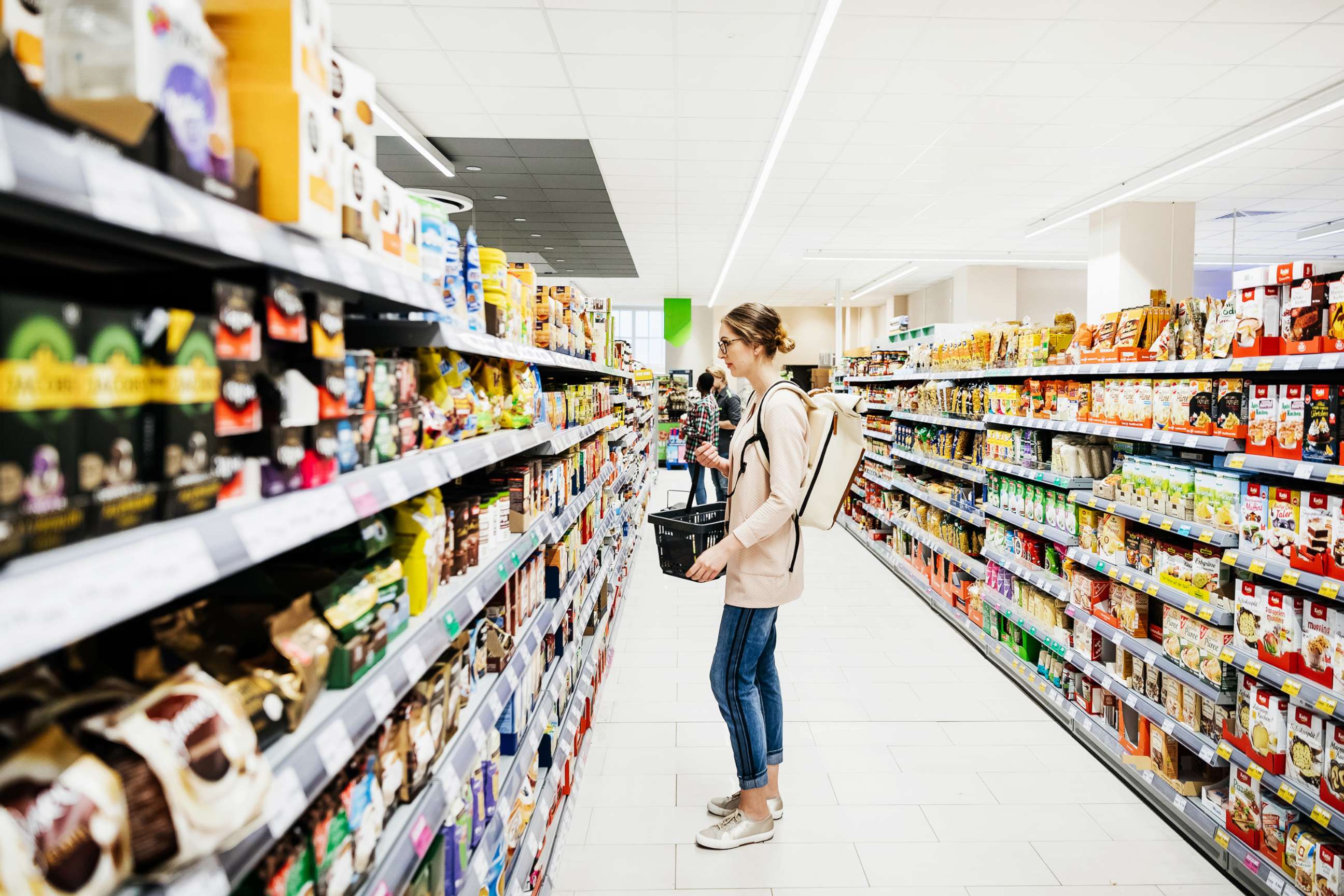Grocery bills will ‘significantly go up’ with new EU tariffs, experts say
French wine, Italian cheeses and much more will be taxed 25% later this month.
The slew of new tariffs on European goods set to take effect later this month could mean your grocery or restaurant bill might see a sharp increase just as the holiday season approaches.
What started as an international trade dispute over subsidies in the airline industry, resulted in the World Trade Organization "awarding" the U.S. the ability to slap tariffs on $7.5 billion worth of goods from the European Union.
While some of those tariffs are directed at aircrafts, a large amount of them fell on agricultural goods, mostly from France, Germany, Spain and the U.K., sending producers abroad and importers in the U.S. reeling.
A 25% tariff on German coffee, Scotch whiskey, British biscuits, Spanish olives, Italian cheeses, French wines and many more are among the myriad of tariffs on EU goods set to go into effect on Oct. 18.

Grocery bills could rise 'at least 25 to 40%'
Americans' grocery bills are going to "significantly go up, at least 25 to 40%, depending on the retailer," Phil Kafarakis, the president of the Specialty Food Association, told ABC News Monday.
Because of the short warning producers and exporters were given for the tariffs, Kafarakis said the costs would likely go straight to the consumers.
"These tariffs are coming at a time with a two-week notice when inventories are being readjusted, so it's such a short period of time for the supply chain, so we believe they are going to be passed right on to the consumers," he said. "It's sad going into the holidays in particular."

When it comes to restaurants that don't often have an inventory built up the way a grocery store would, "you're going to see a broad range immediate price increase" on menus, Kafarakis said.
While these goods may be coming from Europe, "it's not that this is caviar or high-end champagne," Kafarakis said, adding that most everyday consumers will likely be impacted.
We are 'caught in a political game and food is being used as weapon'
Across the pond, many food exporters are also reeling with the news.
Karen Betts, the chief executive of the Scottish Whiskey Association, called the 25% tariff a "blow" to their industry, saying that Single Malt Scotch Whisky represents "over half of the total value of UK products on the US Government tariff list (amounting to over $460 million)."
"For the last 25 years, trade in spirits between Europe and the US has been tariff-free. In that time, exports of Scotch Whisky to the US and of American Whiskey to the UK and Europe have grown significantly, benefitting communities on both sides of the Atlantic, boosting investment, employment and prosperity for all," Betts said.
Antoine Leccia, the president of the French Association of Wine and Spirit Exporters (FEVS), lamented the tariffs announcement, saying they, "will severely impact French wine producers and exporters, but also our customers and consumers in the United States" and are "good news for no one."
In Ireland, where the beloved Kerrygold butter comes from, the Irish Farmers Association Dairy Chairman Tom Phelan noted that Kerrygold is now the second-highest selling butter brand in the U.S., and other exporters have entered the exporting butter market in recent times as well.
“These tariffs have the potential to reduce margins or market share or both," Phelan said, calling on the EU and the Irish government to "make every effort to negotiate our way back to normal trade flows."

Kafarakis said they don't see this coming to an end anytime soon.
"We’re still scratching our heads thinking what do we have to do with this as a food industry," Kafarakis said of the tariffs on foods and agricultural products that came out of the EU's subsidies for Airbus. "We are kind of caught in a political game and food is being used as weapon which is really disappointing."
While consumers are likely to take a hit from these tariffs, "It's going to devastate these family-run retail operations" and hurt "small businesses and entrepreneurs, particularly in the food industry."




